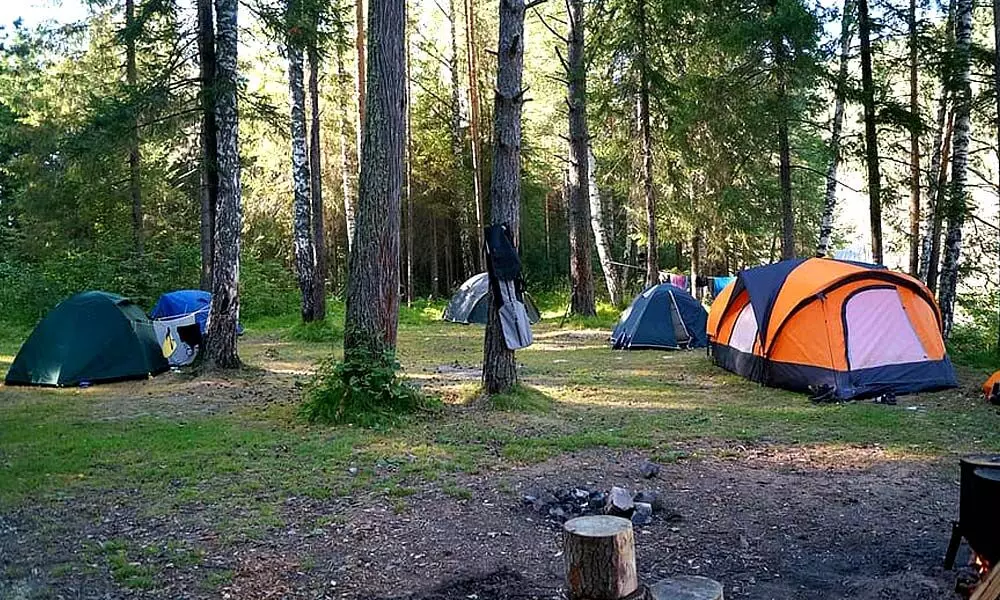Global camping, caravanning mkt to reach $66.7-bn mark by 2023
Lack of infrastructures such as safe parking place with basic and/or advance amenities and lack of standard licensing regime, uniform designs and homogeneous price points, caravan tourism in India is still in the left side of the growth chart
image for illustrative purpose

Asia-Pacific and Africa will be the fastest growing regions with CAGR of 12.1%, 10.6% respectively
The global camping and caravanning market reached a value of nearly $49.9 billion in 2019, having grown at a compound annual growth rate (CAGR) of 5.6 per cent since 2015, and is expected to grow at a CAGR of 7.5 per cent to nearly $66.7 billion by 2023.
Going forward, the fastest growing regions in the camping and caravanning market will be Asia-Pacific and Africa, where growth will be at CAGRs of 12.1 per cent and 10.6 per cent respectively. These will be followed by South America and the Middle East, where the markets are expected to grow at CAGRs of 9.6 per cent and 8.9 per cent respectively.
A caravan, travel trailer or camper trailer is towed behind a road vehicle to provide a place to sleep which is more comfortable and protected than a tent (although there are fold-down trailer tents. It provides the means for people to have their own home on a journey or a vacation, without relying on a motel or hotel, and enables them to stay in places where none is available. However, in some countries campers are restricted to designated sites for which fees are payable.
They are used principally in North America, Europe (mainly Britain and Germany), Australia and New Zealand.
In Europe, the origins of travel trailers and caravanning can be traced back to travelling Gypsies, and showmen who spent most of their lives in horse-drawn caravans.
By the turn of the century, 'caravanning' for leisure had become an increasingly popular activity. In 1901, the first dedicated caravanning club was established. Caravanning gained popularity in North America in the 1920s.
As time progressed, trailers became more liveable and earned a new name in the 1930s and 1940s, which was the house trailer. In the 1950s and 1960s, the industry seemed to split, creating the two types that we see today, that of the recreational vehicle (RV) industry and mobile home industry. Today travel trailers are classified as a type of RV along with motorhomes, fifth-wheel trailers, pop-up trailers, and truck campers.
2016 was a strong year for the global Caravan market. Based on the information collected by the European Caravan Federation (ECF) and the national statistics and licensing agencies, a total of 73,650 caravans were newly registered in 2016, representing a modest growth of 2 per cent over 2015.
India is in nascent stage in caravan tourism and slowly picking up its velocity. Caravan travel initially started as foreign-friendly activity, however, the idea of wild camping is catching up and involves backpacking.
Base camp has launched India's first ever Caravans range in India on October 2012 in New Delhi. Base camp has collaborated with Bharat Petroleum Corporation Limited (BPCL) as their strategic partner. The philosophy behind this partnership is to facilitate parking and other travel utilities to caravan owners on the highways whilst travelling pan India. Base camp is also working with state tourism development board to facilitate caravan parking facilities and also promote tourism using the Caravans in India.
Lack of infrastructures such as safe parking place with basic and/or advance amenities and lack of standard licensing regime, uniform designs and homogeneous price points, caravan tourism in India is still in the left side of the growth chart.
The Caravan Parks have to be safe and secure zone so that the visitors have a hassle free and stress free environment.
The Ministry of Tourism has also recognised the importance of Caravan Tourism in their 2009-10 annual report. One of the pre-requisites of this tourism is the presence of sufficient Caravan Parks. These parks are required to provide allotted parking spaces to the trailers to stay overnight.
Though the culture of campervans was adopted in the US and the UK long ago, caravanning in India is still taking baby steps. There are several aspects related to it, including the lack of infrastructure, good roads, and service centres.
Madhya Pradesh and Karnataka and other states have introduced caravan tourism in the state, allowing travellers to hire a fully-equipped van with convertible beds, a shower, modern toilet, smart TV, music system, and a kitchenette, others may follow suit soon.
Against the backdrop of Covid-19 and need for safe travel, the Maharashtra Cabinet has approved a new 'caravan tourism' policy that seeks to provide incentives to tour operators and at the same time boost employment opportunities in the pandemic-battered sector.

